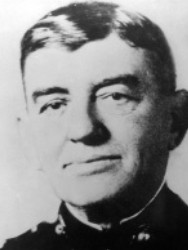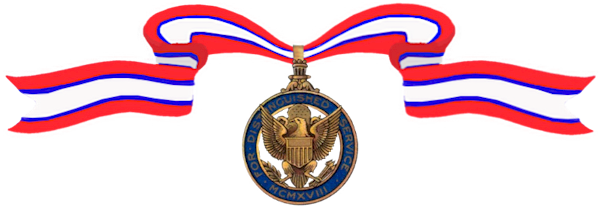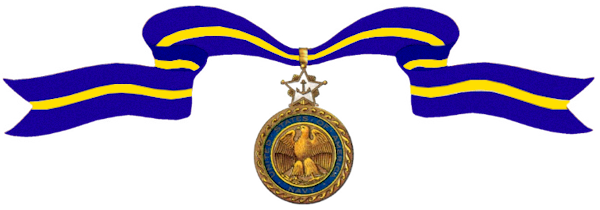John Lejeune graduated from the U.S. Naval Academy at Annapolis, Class of 1888. From July 1, 1920 to March 4, 1929, he served as the 13th Commandant of the U.S. Marine Corps and retired as a U.S. Marine Corps Lieutenant General.

–
Cemetery:
Awards Received
-

Army Distinguished Service Medal
-

Navy Distinguished Service Medal
-
Army Distinguished Service Medal
Service:
United States Marine CorpsRank:
Major GeneralDivision:
2d DivisionAction Date:
World War I
War Department, General Orders No. 12 (1919)The President of the United States of America, authorized by Act of Congress, July 9, 1918, takes pleasure in presenting the Army Distinguished Service Medal to Major General John Archer Lejeune, United States Marine Corps, for exceptionally meritorious and distinguished services to the Government of the United States, in a duty of great responsibility during World War I. Major General Lejeune commanded the Second Division in the successful operations of Thiaucourt, Masif Blanc Mont, St. Mihiel, and on the west bank of the Meuse. In the Argonne-Meuse offensive his division was directed with such sound military judgment and ability that it broke and held, by the vigor and rapidity of execution of its attack, enemy lines which had hitherto been considered impregnable.
-
Navy Distinguished Service Medal
Service:
United States Marine CorpsRank:
Major GeneralDivision:
2d DivisionAction Date:
World War I
Authority: Navy Book of Distinguished Service (Stringer)The President of the United States of America takes pleasure in presenting the Navy Distinguished Service Medal to Major General John Archer Lejeune, United States Marine Corps, for exceptionally meritorious and distinguished services. Major General Lejeune commanded the Second Division in the successful operations of Thiaucourt, Masif Blanc Mont, St. Mihiel, and on the west bank of the Meuse. In the Argonne-Meuse offensive his division was directed with such sound military judgment and ability that it broke and held, by the vigor and rapidity of execution of its attack, enemy lines which had hitherto been considered impregnable.

